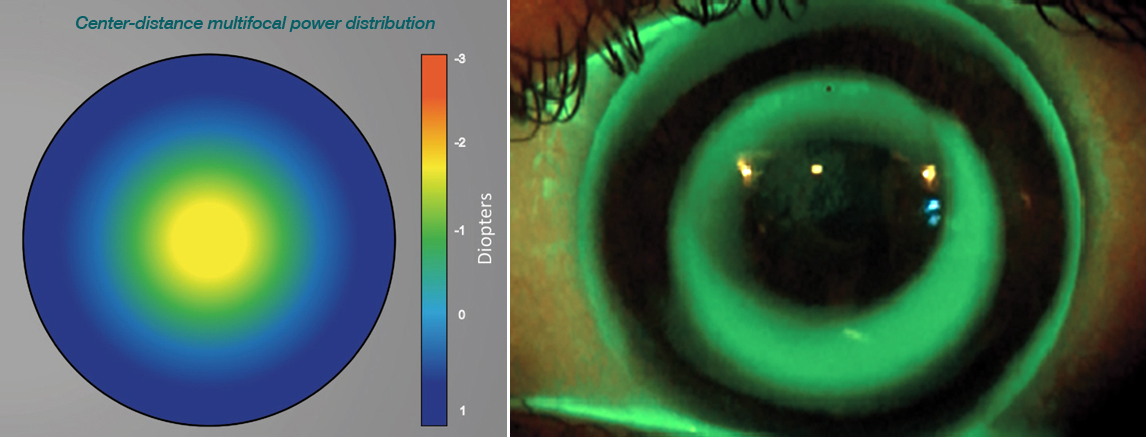 |
| Multifocal soft contact lenses and ortho-K lenses both outperformed single-vision spectacles in terms of controlling myopia progression in children. Photo: Keyur Savla, and Daddi Fadel, DOptom. Click image to enlarge. |
Initiating treatment early in a myope’s life is critical in slowing the disease’s progression and maximizing visual outcomes. Multifocal soft contact lenses and orthokeratology are two of the many methods available today to help control myopia. Researchers of a recent study examined the effectiveness of both types of contact lenses compared with that of single-vision spectacles after one year of wear. They found that multifocal soft and ortho-K lenses were more successful in delaying myopia progression.
The study involved 66 Chinese participants, aged seven to 15, with cycloplegic refraction measurements between 21D and 28D, astigmatism no greater than 1D and no history of myopia treatment. Participants were randomly assigned to receive either multifocal soft contact lenses, ortho-K or single-vision spectacles. The researchers recorded baseline measurements of cycloplegic refraction, axial length and corneal endothelial cell density. At six- and 12-month follow-up visits, changes in these three parameters were measured in the multifocal lens group and the spectacle group, while in the ortho-K group, axial length change was measured at six and 12 months and corneal endothelial cell density at 12 months.
The group wearing single-vision spectacles experienced more myopia progression after one year than the group wearing multifocal contacts (mean change of spherical equivalent refraction: 20.94D vs. 20.59D). Multifocal soft contact lenses reduced the rate of myopia progression by 37% compared with single-vision spectacles.
The treatment methods also had a significant effect on axial length elongation. The researchers noted that after one year, axial length elongation was 0.3mm for multifocal soft contact lenses, 0.31mm for ortho-K and 0.41mm for single-vision spectacles. “Compared with the single-vision spectacles group, the reduction in axial length elongation was 26.8% and 24.4% in the multifocal soft contact lens and ortho-K groups, respectively,” they added. No significant differences in corneal endothelial cell density were detected between the groups.
The researchers explained that multifocal soft and ortho-K contact lenses work to reduce axial elongation by inducing peripheral myopia defocus. They concluded that these two lenses, more so than single-vision spectacles, are effective and promising ways to treat myopia in young children by helping to prevent or slow progression.
Jianxia F, Zhu H, Yan L, et al. Retardation of myopia by multifocal soft contact lens and orthokeratology: a 1-year randomized clinical trial. Eye Contact Lens. June 3, 2022. [Epub ahead of print]. |

